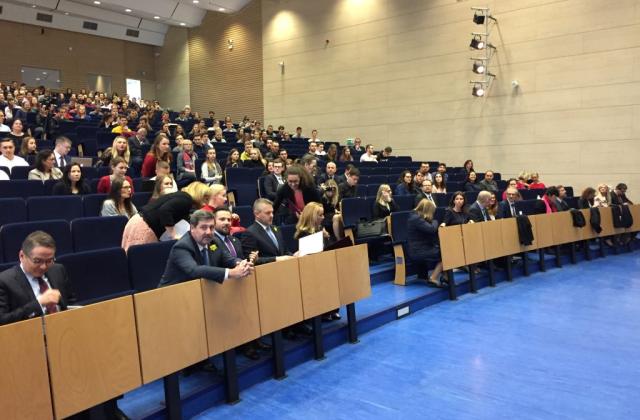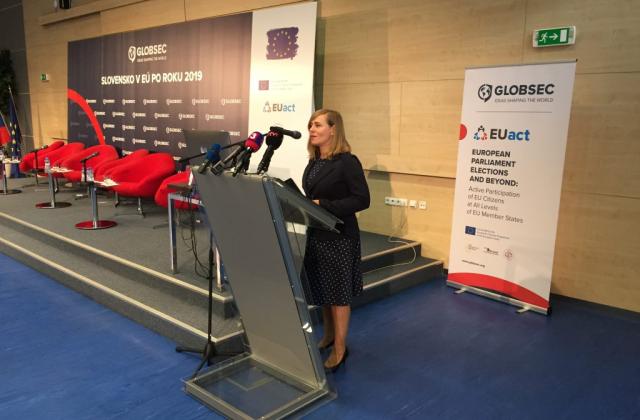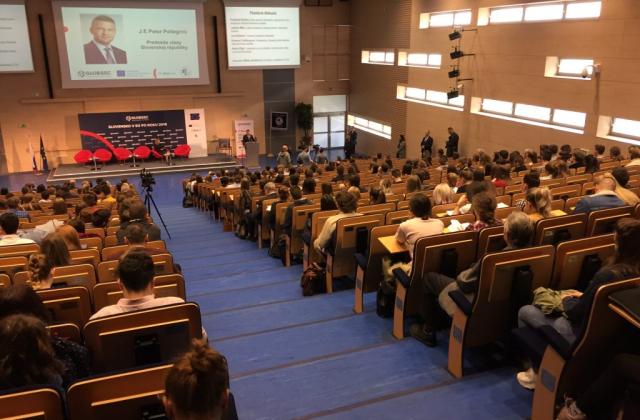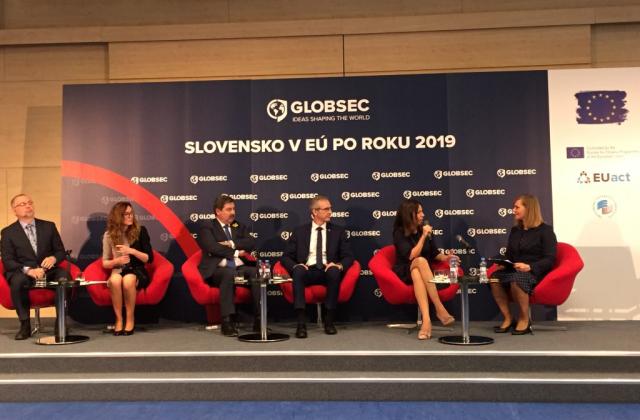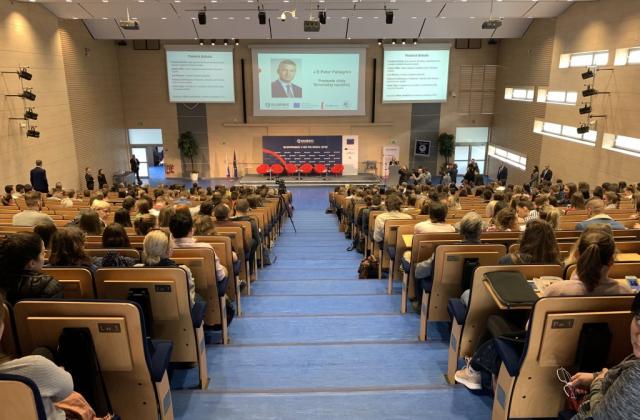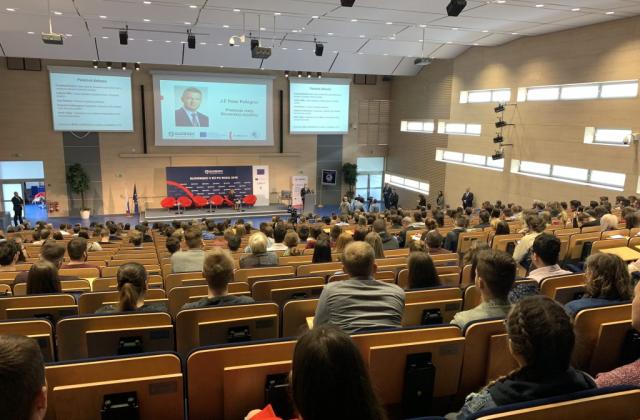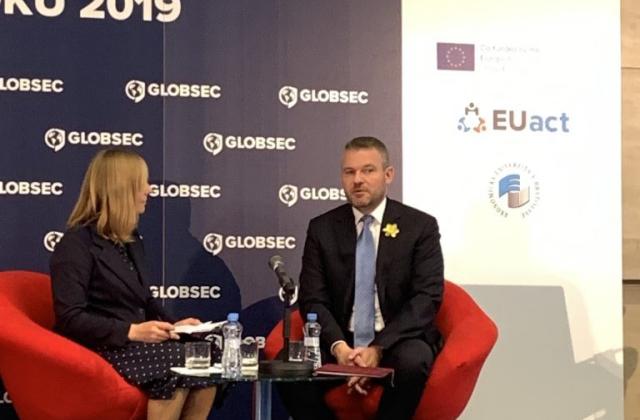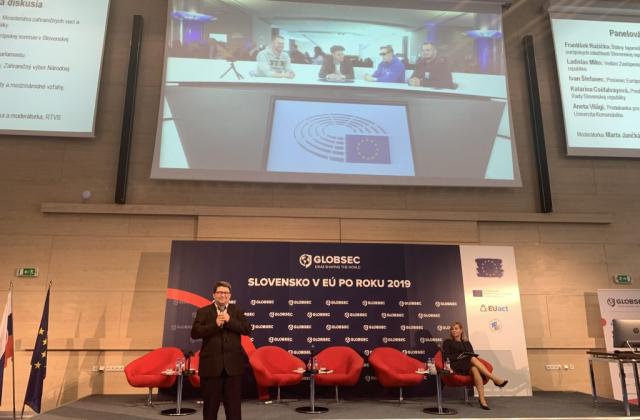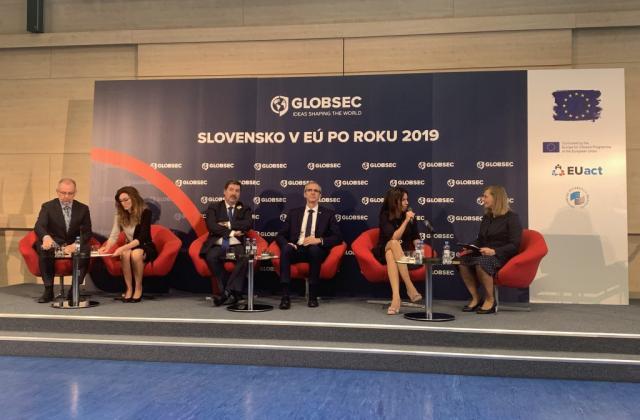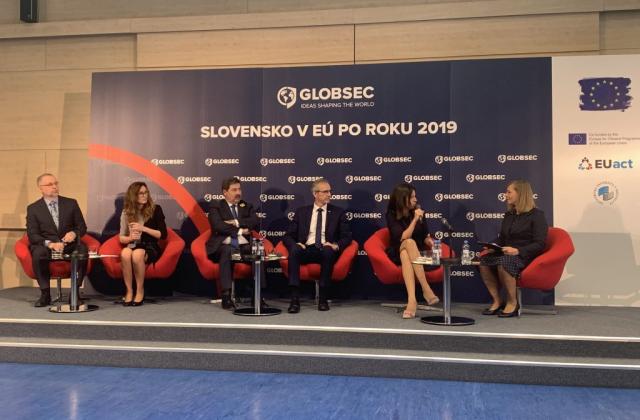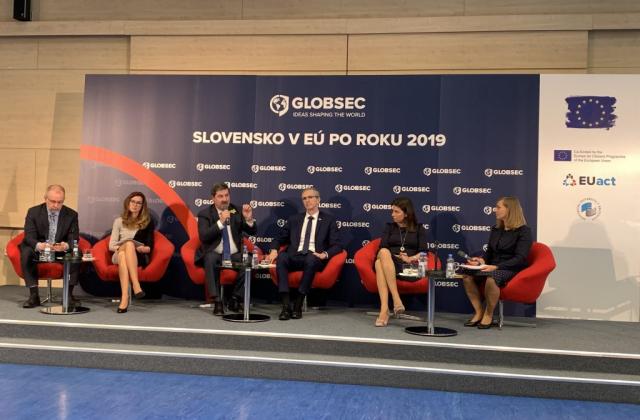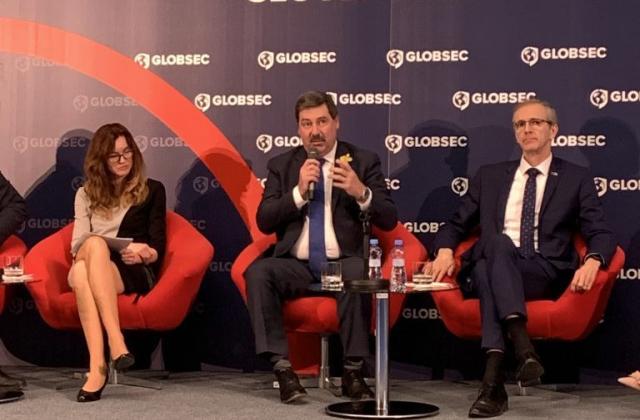Slovakia in the EU after 2019 (Bratislava)
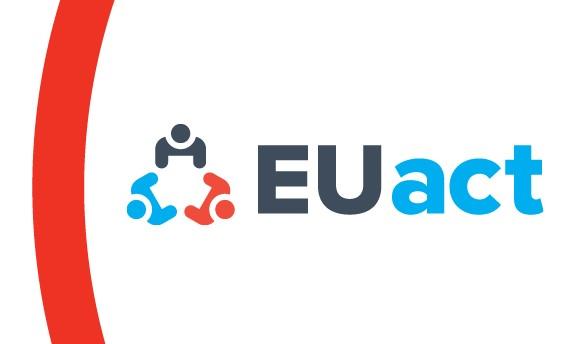
Date: 11 April 2019
Location: University of Economics, Bratislava, Slovakia
Participation: 373 participants from 9 countries (Bulgaria, Czech Republic, France, Greece, Hungary, Poland, Russia, Slovakia and Spain)
Europe Needs More Integration and Unity.
This was a message of the Prime Minister of the Slovak Republic Peter Pellegrini during his keynote speech at the event “Slovakia in the EU after 2019” that was organized by GLOBSEC and the University of Economics in Bratislava on 11 April 2019. The Prime Minister stressed also that strategically, politically and economically there is no alternative to Slovakia’s EU-Atlantic orientation. The debate formed part of the EUact– “EP Elections and Beyond: Active Participation of EU Citizens at All Levels” project, which is a EUROPE FOR CITIZENS PROGRAMME Civil Society Project that aims to encourage sustained and active civil engagement of young people at EU level. The project is implemented in Bulgaria, Germany, Poland and Slovakia.
The Prime Minister Peter Pellegrini sees Slovakia strongly embedded within the European Union (EU) in 2019 as well as after 2019. He believes keeping the EU together and forging unity is of utmost importance. In fact, if Slovakia as well as other EU states want to retain strong position at the international stage, even more integration is required, especially in the area of technology, R&D or defence and security. The opposite would likely cause an overall decline in economic, political, social and security situation not only in Slovakia but in the EU as a whole.
Slovakia’s membership in the EU is a success story. Today Bratislava is fully integrated with the EU and has been able to successfully pursue its interests in Brussels. Although in Slovakia the reforms in the areas such as for example of judicial sector are needed or there is room for improvement in creating more business friendly environment or investing more in research and development, it is crucial to remind ourselves of the positives the EU has brought us until this day. For example, Slovakia gained access to the EU single market, which helped in the transition process. Today approximately 80% of our export is headed to the EU countries (in comparison, only 1,8% that goes to Russia).
To put is simply, Slovakia’s economic situation improved, GDP has grown, employment rate increased, stable currency was achieved. What is more the EU has encouraged Slovakia to continuously modernise itself. Furthermore, as an EU member state, Slovakia has greater negotiating power in global economy, which it otherwise would not have and could be an easy target for other economic players such as China or other BRICS economies.
During the panel discussion, the speakers answered, among others, the following questions Why does Slovakia have low participation in the EU election?, What needs to change to propel more voters to go to the ballot?, What reforms should be implemented moving forward?
For many Slovakians, the EU appears to be as something abstract and many feel that Brussels is distant and does not have any direct implications on their lives. The dominant rhetoric in Slovakia used to be us versus them (Brussels) instead of us within the EU as a valuable member. Further, many Slovak politicians misrepresent the democratic decision-making process within the EU (i.e. a myth that unelected bureaucrats take decisions on our behalf as in GLOBSEC publication), which has inevitably a negative impact on public perception of the EU. Moreover, Slovak politicians and media do not cover this topic enough to create a public dialogue so the people would understand the importance of participation in the EU elections. Finally, the way the campaigns are being led requires a change.
The Slovaks need to have something to associate themselves with in order to improve voters mobilisation. If citizens do not have the impression, they are going to influence something important they are less likely to vote. In order to increase participation in the EU election education and critical thinking is paramount. This is to respond to the fact that majority of citizens cannot name a single thing brought about by the EU. There should be more space for open public dialogue about the EU, outlining why Slovakia is a member of the EU emphasising the things we enjoy thanks to this membership and importantly what is the alternative. Politicians should also assume a strong position that it is a strategic priority for Slovakia to be in the EU. On national level, Slovakia has to reach consensus and strengthen its common pro-EU position.
The discussion was taken up by František Ružička, State Secretary of the Ministry of Foreign and European Affairs of the Slovak Republic, Ladislav Miko, Head of the Representation of the European Commission in Slovakia, Ivan Štefanec, Member of the European Parliament, Katarína Cséfalvayová, MEP and the Chair of the Foreign Affairs Committee of the National Council of the Slovak Republic, and Aneta Világi, Vice Dean,Faculty Development and International Relations, Comenius University. The discussion with Prime Minister and the panel was chaired by Marta Janckarova, Journalist and Moderator from RTVS.
The event was attended by 373 participants from 8 countries (France, Greece, Spain, Hungary, Bulgaria, Czechia, Slovakia and Russia. The participants watched also the video Spoza bruselského stola: Sajfa, Menameselassie, Fero Joke a Matúš Krnčok o eurovoľbách 2019 https://www.youtube.com/watch?v=IN2AoHQPIm0 that aims to encourage young people to vote in the upcoming elections. The video was prepared by the office of the European Parliament Information Office in Slovakia and introduced by Dionýz Hochel, the Acting Head.
Media coverage:
- Ružička: Membership in the EU and Transatlantic Structures Is a Strategic Priority and an Existential Necessity for Slovakia
- Pellegrini: Alternatíva k Európskej únii existuje, ale nikto si ju neželá
- Pellegrini vyslal odkaz Dankovi o Rusku: Ukázal mu, kto je náš strategický partner
- F. Ružička: Členstvo v EÚ a transatlantických štruktúrach je pre Slovensko strategickou prioritou a existenčnou nevyhnutnosťou
- Diskusia na tému Slovensko v EÚ po roku 2019 na EU v Bratislave
- A.Világi: Ľudí k účasti na voľbách motivujú témy
- EÚ po voľbách čakajú výzvy. Čo prognozujú odborníci

